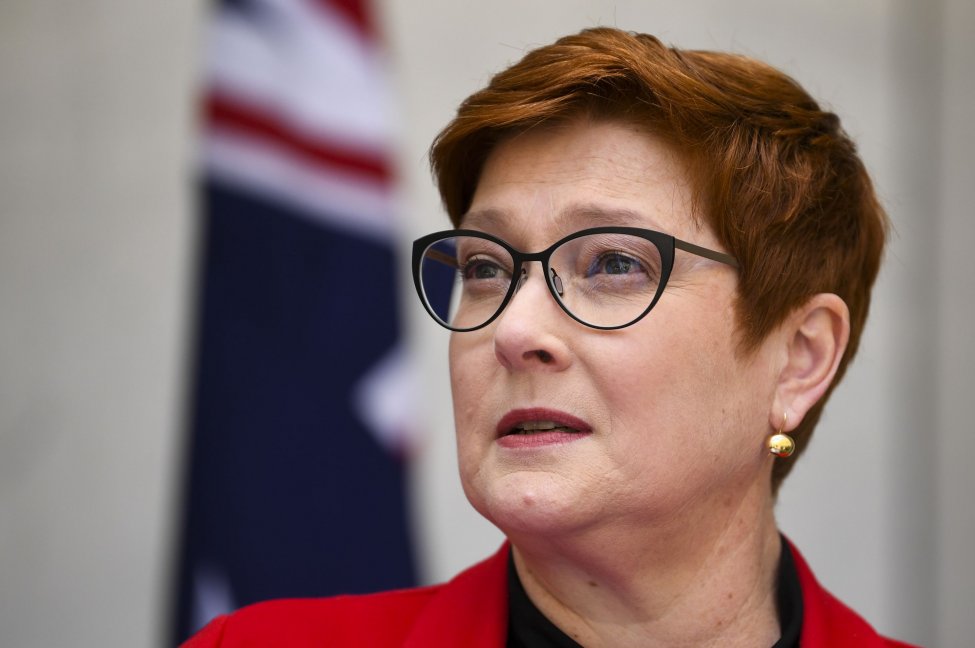Australian Foreign Minister Marise Payne said the sanctions regime will allow the country to act swiftly against human rights abusers and corrupt officials. Photo by Lukas Coch/EPA-EFE
Dec. 2 (UPI) — Australia on Thursday adopted a new targeted sanctions regime similar to that of the United States, arming the island nation with the ability to punish international human rights abusers, cybercriminals and corrupt officials.
The laws passed both houses of Parliament, making Australia the latest nation to adopt Magnitsky-style rules to punish human rights violations and corruption with travel bans and asset freezes while denying those blacklisted from access to Australia’s financial markets.
“The reforms will ensure Australia can take timely action, including with like-minded partners where it is in our national interest, to impose costs on, influence and deter those responsible for egregious situations of international concern, wherever they occur in the world, while minimizing impacts on general populations,” Marise Payne, the minister of foreign affairs, said in a statement Thursday.
Named after Russian tax lawyer Sergei Magnitsky who was killed in a Moscow prison in November 2009, the U.S. Global Magnitsky Act was passed by the U.S. Congress in 2012 to give the president powers to deny entry into the United States, block property under U.S. jurisdiction and prohibit U.S. citizens from doing business with those deemed to be responsible for gross human rights violations, including extrajudicial killings and torture, and foreign government officials responsible for acts of significant corruption.
Canada, Britain, the European Union and several other nations have adopted similar Magnitsky-style sanctions regimes.
The Biden administration said it “commends” Australia for strengthening its sanction powers.
“Together with other allies and partners, the United States and Australia will seek to promote our shared democratic values with similar tools and continue to call on international partners to adopt sanctions structures that can address these challenges to democratic ideals,” Secretary of State Antony Blinken said in a statement. “Human rights abusers, corrupt and malign actors, transnational criminals and those who seek to proliferate [weapons of mass destruction], no matter where they are located, will not have access to our financial systems.”
In Australia, human rights advocates welcomed the adoption with the Australian Center for International Justice calling it overdue, stating the nation has been used by human rights abusers as a safe haven, allowing them entry with ease, the ability to invest in its financial institutions and enroll their children into its schools and universities.
“To ensure the effectiveness of the sanctions regime, the government must provide additional resources to the Australian Sanctions Office to be able to receive information for sanctions consideration,” Rawan Arraf, executive director of the Australian Center for International Justice, said in a statement. “We’re also hoping for better engagement with civil society organizations who have proved to be pivotal to the application of targeted human rights sanctions in the U.S. U.K., Canada and Europe.”
Meanwhile, others have already begun calling on Australia to use its newly adopted powers.
“Now Australia has new Magnitsky-style sanctions legislation, it is time to end the government’s shameful inaction in response to the Myanmar military’s genocide, war crimes and crimes against humanity,” the activist group Justice for Myanmar said in a tweet.
In the United States, Human Rights First said it hopes other countries such as New Zealand, Japan and other countries will soon follow Australia’s lead “so they do not become the next safe haven for abusers and their ill-gotten funds.”
